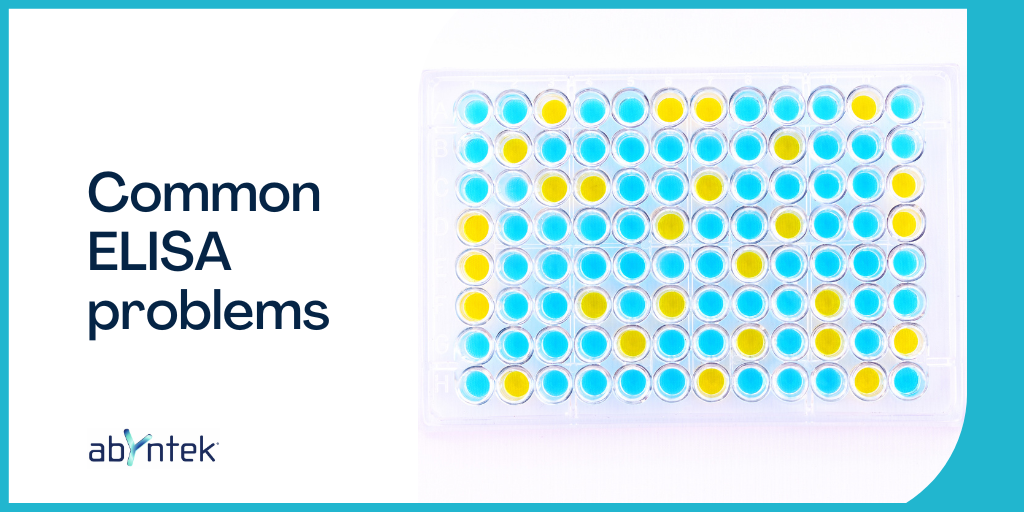ELISA is a highly sensitive technique, since it is based on antigen-antibody specifity to determine the presence and quantity of a metabolite or antibodies. As a precise technique, small variations may lead to erroneous results. This is why one very common question is: why is my ELISA test not working?
Check out our search engine for antibodies, proteins and ELISA kits.
You may also contact our team to find the ELISA kit that best suits your research. Contact us here.
The most common problems when carrying out an ELISA test may be classified into 3 groups: mistakes in samples, in reagents or in the execution technique.

Samples
- Not taking or storing the samples correctly.
- Not distinguishing between serum and plasma.
- Failure to correctly homogenize the samples by using a methodology that is not adequate or specific for the type of sample.
- Presence of endogenous substances in the sample or traces of other substances.

Reagents
- Not following the instructions of the ELISA kit when preserving or storing the reagents.
- Contamination of reagents due to mislabelling or misuse.
- Not preparing the reagents at the time of the test.
Standard curve
- Mistakes when homogenizing and reconstituting the pattern to make the standard curve.
- Standard dilutions not serialized due to incorrect pipetting.
- The use of few dilutions will cause a poor curve making difficult to extrapolate the results.

Execution
- Pipetting skills are essential when performing an ELISA test.
- Using poorly calibrated pipettes or not respecting the pipetting range of each one.
- Reuse consumables. The assay can be contaminated.
- Do not treat the samples equally. Multichannel pipettes save time if used correctly and precisely. Otherwise, the same quantity of reagents will not be administered to each well.
- Not correctly removing the solutions from each well, in a homogeneous way.
- Not blocking for the necessary time.
- Not incubate antibodies for the necessary time.
- Not Preparing the substrate solution at the time of use.
- Incubate the substrate in light may damage the enzymatic reaction.
- Allow too much time to reveal the results.

At Abyntek, we are aware that small tips when performing an ELISA test are very important to solve those problems that may arise.
Do not hesitate to contact us for further assistance in selecting the most suitable ELISA kit for your research as well as for its proper use.




